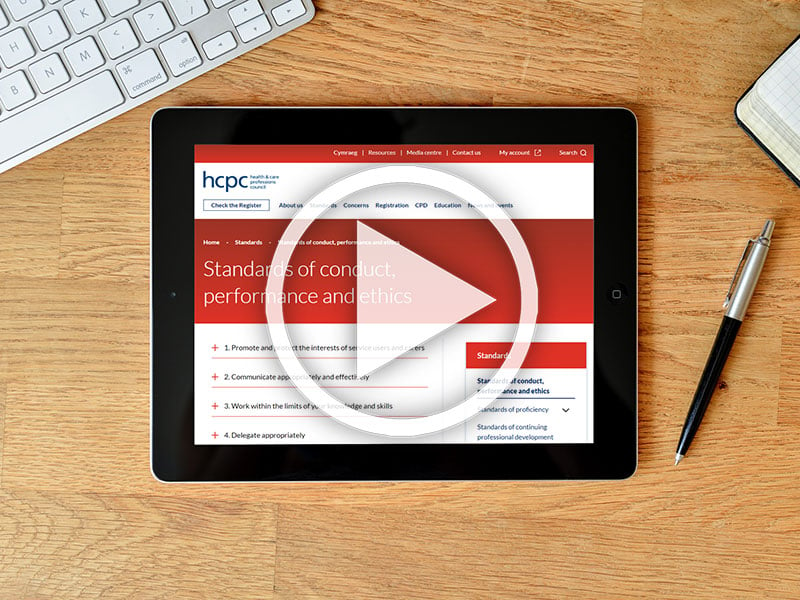This section includes additional resources to help you approach and apply supervision

Supervision FAQs
Expand all
-
Supervision requirements will vary for each individual. We expect you to use your professional judgement when determining what type or level of supervision is appropriate, taking into consideration your level of experience, the setting you work in and your scope of practice.
You can approach your colleagues, your manager, or your professional body for further advice.
Your employer may also have specific requirements for supervision, which you should follow.
If you are a practice educator involved with the supervision of students, the relevant education provider may have specific requirements for supervision that you should follow.
You can also use the resources on this page to help identify what level of supervision you think you need.
-
The number of hours of supervision you should receive will vary depending on your particular profession, the setting in which you work and your scope of practice. It will also depend on your particular learning needs or objectives.
You should consider the resources on this page, our standards and advice from colleagues, your manager, and your professional body to help identify the amount of supervision you need.
-
It will depend on your scope of practice and your current level of experience with both supervision and the area of practice your colleague is working in.
We do not set any specific requirements around training for this role, however, as with all areas of practice we would expect you to have the relevant knowledge and skills and training to supervise safely and effectively. This could be through formal training or skills obtained in your role.
Your employer may also have specific supervision training, which you will be required to undertake.
You may be required to demonstrate your knowledge and skills in this area if you are selected for a CPD audit. If unsure, you can approach your manager or your professional body, who will be able to help you identify any training needs and courses, where appropriate.
-
Yes – provided you have the skills, knowledge and experience to deliver supervision in the area of work your colleague needs supervision with.
We do not set out requirements in this area but would expect you to have the relevant knowledge skills and training to supervise safely and effectively. This could be through formal training or skills obtained in your role.
However, where you work in a different profession to your supervisee, you may sometimes need to seek advice and support from senior colleagues in your supervisee’s profession from time to time.
-
Yes – provided that this does not impact your ability to provide an appropriate level of oversight and support to all supervisees.
Group supervision can also be an effective way to conduct supervision sessions when individuals have similar learning objectives. However, if a supervisee has a specific learning objective, then one-to-one supervision may be more appropriate so that you can provide targeted support.
-
Supervision plays a key part professional learning and development. It also has many benefits for participants, service users and wider service delivery. Our Standards therefore support the case that registrants should be participating in supervision as part of their practise where possible.
For example, the Standards of conduct, performance and ethics require you to work in partnership with colleagues, sharing your skills, knowledge and experience where appropriate, for the benefit of service users and carers (Standard 2.5). Our definition of colleagues, set out in the glossary of the Standards, includes students. We also require you to provide ‘appropriate supervision and support’ to someone that you have delegated work to (Standard 4.2).
Therefore, if you are asked to supervise a newly qualified member of staff or student, the general expectation would be that you do this.
As with any area of practice, you would need to make sure this is part of your scope of practice and that you have the skills, knowledge and experience to do this safely. It’s therefore important that you are suitably qualified in the area of practice your colleague is working in, and that you have received appropriate training and support to provide the supervision being requested.
You can read our statement on student supervision for more information.
-
In the first instance we would always recommend speaking with your supervisor to try and resolve the matter.
If, following these discussions, you still have concerns then you should escalate them through the appropriate channels at your place of employment.
If you have raised your concerns with your supervisor and your employer, and those concerns have not been sufficiently addressed, then you might want to consider finding a new supervisor. Your professional body may be able to help facilitate this, outside of your place of work.
If you have more serious concerns about the conduct of your supervisor, this might also be something you need to raise concerns about. Please read our advice on raising concerns for more information.
Related content
Further guidance on supervision
Your professional body or your employer may have further information about how to approach your supervision effectively. They may also have additional requirements that you will need to follow.
A list of the professional bodies for the professions we regulate can be found on our webpages here.
Don't forget to look through our guidance for supervisees and supervisors to assist you in your supervsion duties as well.







